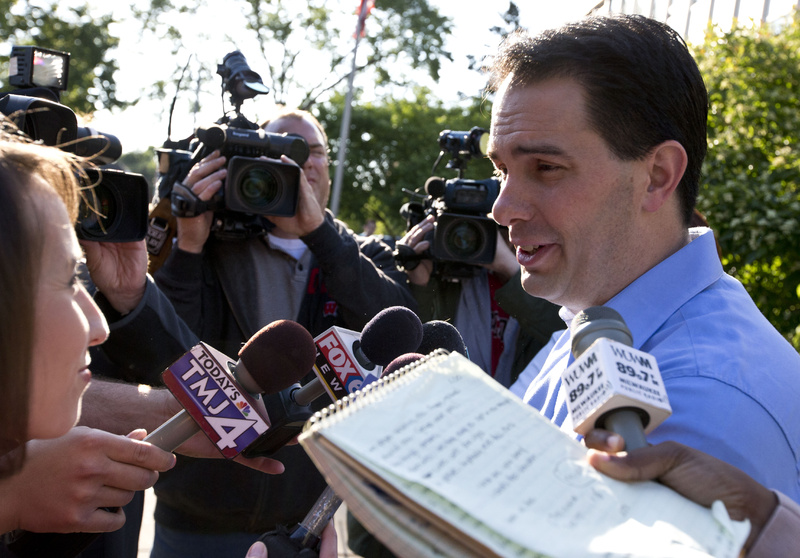Only time will tell whether Wisconsin Gov. Scott Walker’s solid victory in Tuesday’s recall election will resonate nationally as other voters go to the polls in November.
His win could be a sign that voters in states like Wisconsin (and Maine) that swung to the Republicans after voting for President Obama in 2008 are not ready to swing back. Or it could just show that a majority of Wisconsin voters are comfortable enough with Walker even if they don’t agree with him on everything, and think the recall process should be preserved for truly extraordinary examples of malpractice.
But it’s not too soon to observe that organized labor is getting weaker as a force that can influence elections. This is not true about corporations, which continue to grow more and more powerful, bringing a message to the public and controlling the debate.
As of late last month, $45.6 million in mostly corporate money had been spent on behalf of Walker, while his opponent spent about $18 million.
That fundraising advantage was supposed to have been balanced by labor unions, which sent thousands of volunteers to Wisconsin for door-to-door campaigning and get-out-the-vote efforts.
This notion of balance has been invoked repeatedly as a string of court decisions has made it easier for corporate money to be used to influence elections, but it’s not a fair fight. Wisconsin shows that unions can’t keep up with corporate donors, whether they’re contributions are counted dollar-for-dollar or in kind.
The result is an imbalance between one set of interests and all others, which does not bode well for a healthy electoral process. If labor unions are declining in influence, there should be another balance against the influence of corporate money.
This is not sour grapes over the Wisconsin result, but a valid concern for future elections in Maine, where it is relatively inexpensive for out-of-state corporations to influence elections. Just look at the recent $9,000 expenditure in a state Senate primary from a PAC funded by a would-be racino developer that wants to help its allies. That one contribution exceeds the allotment the opposing candidate received from the Clean Elections fund to pay for her entire campaign.
If Maine and the federal government allow this kind of power to grow unchecked, we will not be happy with the kind of democracy that is left behind. Unions are not strong enough to counter corporate influence. It will take a new generation of campaign finance laws to make sure that all voices are heard before the votes are cast.
Send questions/comments to the editors.



Success. Please wait for the page to reload. If the page does not reload within 5 seconds, please refresh the page.
Enter your email and password to access comments.
Hi, to comment on stories you must . This profile is in addition to your subscription and website login.
Already have a commenting profile? .
Invalid username/password.
Please check your email to confirm and complete your registration.
Only subscribers are eligible to post comments. Please subscribe or login first for digital access. Here’s why.
Use the form below to reset your password. When you've submitted your account email, we will send an email with a reset code.